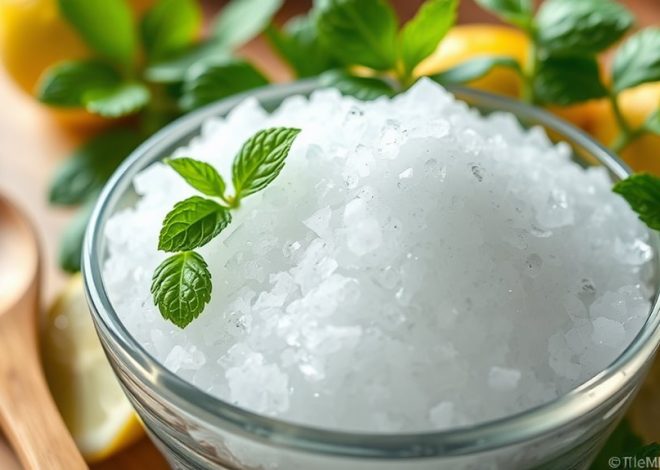
Face Mask Recipes for Every Skin Problem You Can Imagine
Face Mask Recipes for Every Skin Problem You Can Imagine
Like a painter chooses colors for a masterpiece, you can select face masks to address your unique skin concerns. Whether you’re battling acne, craving hydration, or seeking radiance, there’s a recipe tailored just for you. Each mask harnesses natural ingredients to target specific issues, ensuring your skin receives the care it deserves. But which mask should you start with, and what ingredients will work best for your skin type? Let’s explore the options.
Acne-Fighting Face Masks
Acne can be a frustrating challenge for many, but effective face masks can provide relief and improve your skin’s appearance.
In this DIY face mask guide, you’ll discover simple recipes that utilize ingredients like honey, tea tree oil, and yogurt.
Honey’s antibacterial properties help combat breakouts, while tea tree oil’s anti-inflammatory benefits reduce redness.
Yogurt contains lactic acid, which gently exfoliates dead skin cells.
Mix these ingredients to create a potent mask, applying it for 15-20 minutes before rinsing. Additionally, natural face masks made from kitchen ingredients can rejuvenate your skin and enhance your routine.
Consistent use can significantly enhance your skin’s clarity, making these masks a valuable addition to your skincare routine.
Hydrating Masks for Dry Skin
If you’re struggling with dry skin, hydrating masks can be a game changer in your skincare routine.
These masks deliver essential moisture, leaving your skin plump and radiant.
Here are key ingredients to look for:
- Hyaluronic Acid: Attracts and retains moisture.
- Aloe Vera: Soothes and hydrates skin.
- Glycerin: Acts as a humectant, drawing moisture in.
- Coconut Oil: Provides deep nourishment and locks in hydration.
- Avocado: Rich in fatty acids, it revitalizes dry skin.
Incorporating these hydrating masks will transform your skin, helping you achieve a smoother, more supple complexion. Additionally, using natural ingredients in your masks can promote radiant skin and enhance your overall glow.
Brightening Masks for Dull Complexions
If your complexion looks tired and lackluster, brightening masks can provide a refreshing boost.
Utilizing natural ingredients like citrus, honey, and turmeric can effectively enhance your skin’s radiance. Incorporating DIY face mask recipes into your skincare routine can also help target specific concerns and promote overall skin health.
Here, you’ll find easy DIY mask recipes that will help you achieve a glowing appearance.
Natural Ingredients That Brighten
A radiant complexion often feels just a mask away, and natural ingredients can play a crucial role in achieving that glow.
Incorporating these components into your skincare routine can brighten dull skin effectively:
- Honey: Hydrates and adds a natural sheen.
- Lemon Juice: Rich in vitamin C, it helps to lighten dark spots.
- Turmeric: Known for its anti-inflammatory properties, it promotes an even skin tone.
- Papaya: Contains enzymes that gently exfoliate and brighten.
- Aloe Vera: Soothes and hydrates, leaving skin fresh and luminous.
Utilizing these natural ingredients can transform your complexion, enhancing its overall appearance.
DIY Mask Recipes
Brightening your complexion is just a few simple ingredients away.
Try mixing one tablespoon of honey with one tablespoon of lemon juice. Honey hydrates while lemon naturally brightens skin. Apply it for 15 minutes, then rinse.
For a yogurt mask, combine two tablespoons of plain yogurt with a teaspoon of turmeric. This blend revitalizes dull skin and evens tone. Leave it on for 20 minutes before washing off.
Lastly, mash half a banana and mix it with a tablespoon of oatmeal. This mask exfoliates and nourishes.
Use these masks weekly for a luminous, refreshed appearance that’ll enhance your natural glow.
Soothing Masks for Sensitive Skin
If you have sensitive skin, using soothing masks can provide much-needed relief and hydration. You’ll want to focus on calming ingredients like aloe vera and chamomile, which can help reduce irritation. Incorporating natural remedies can further enhance the healing process and alleviate discomfort. We’ll explore DIY recipes and application techniques to ensure your skin feels its best.
Calming Ingredients to Use
Sensitive skin requires special care, and choosing the right calming ingredients can make all the difference in your skincare routine.
Incorporate these soothing components into your masks for optimal results:
- Aloe Vera: Known for its hydrating and anti-inflammatory properties.
- Chamomile: Offers calming effects that reduce redness and irritation.
- Honey: Naturally antibacterial and provides moisture without clogging pores.
- Oatmeal: Relieves itchiness and soothes inflamed skin.
- Green Tea: Packed with antioxidants, it helps reduce swelling and irritation.
DIY Soothing Recipes
Looking for effective ways to pamper your skin while keeping it calm and irritation-free? DIY soothing masks can be your answer.
Try a simple blend of yogurt and honey; the probiotics in yogurt soothe inflammation, while honey hydrates.
Alternatively, mix oatmeal and chamomile tea for a calming mask that reduces redness.
If you prefer a cooling effect, blend cucumber and aloe vera for a refreshing treatment.
Each of these recipes targets sensitivity, offering relief and nourishment.
Customize these masks to your needs, ensuring your skin feels refreshed and rejuvenated without the risk of irritation.
Your sensitive skin deserves this care!
Application Tips and Techniques
How can you maximize the benefits of your soothing masks for sensitive skin?
Start by following these essential tips for optimal application:
- Cleanse: Always wash your face to remove dirt and impurities.
- Patch Test: Before applying, test the mask on a small area to avoid reactions.
- Warm Up: Slightly warm the product in your hands to enhance absorption.
- Gentle Application: Use your fingertips to apply the mask, avoiding harsh rubbing.
- Relax: Allow the mask to sit undisturbed for the recommended time to let the ingredients work effectively.
Implement these techniques for a soothing experience that calms your sensitive skin.
Anti-Aging Masks for Mature Skin
As you age, your skin naturally loses elasticity and moisture, making anti-aging masks a vital addition to your skincare routine.
Look for masks rich in ingredients like hyaluronic acid, collagen, and antioxidants.
These components help hydrate, plump, and protect your skin from environmental stressors.
For a simple DIY option, mix ripe avocado with honey; this blend nourishes and revitalizes.
Alternatively, consider a mask with green tea and yogurt for its soothing and firming properties.
Incorporating a DIY anti-aging serum into your routine can further enhance the rejuvenating effects of these masks.
Apply these masks weekly for best results, and you’ll notice smoother, more youthful-looking skin over time.
Prioritize your skin’s health and embrace these rejuvenating treatments!
Exfoliating Masks for Clogged Pores
Are you struggling with clogged pores and dull skin?
Exfoliating masks can help clear away dead skin cells, revealing a brighter complexion.
Here are some key ingredients to look for in your mask:
- Baking Soda: Gently exfoliates and balances pH.
- Honey: Antimicrobial properties that soothe and hydrate.
- Sugar: Natural granules provide physical exfoliation.
- Clay: Absorbs excess oil and detoxifies pores.
- Fruit Enzymes: Break down dead skin cells naturally.
Using these ingredients, you can create effective masks that unclog pores and enhance your skin’s radiance.
Regular use will leave your skin looking fresh and revitalized.
Nourishing Masks for Oily Skin
Nourishing masks specifically designed for oily skin can effectively balance excess oil while providing essential hydration. These masks often contain ingredients like clay, honey, and aloe vera that help absorb oil without stripping moisture.
| Ingredient | Benefits | Recipe Example |
|---|---|---|
| Clay | Absorbs excess oil | Clay and water mask |
| Honey | Antibacterial, hydrates skin | Honey and lemon mask |
| Aloe Vera | Soothes and hydrates | Aloe and cucumber mask |
| Yogurt | Balances pH, nourishes | Yogurt and oatmeal mask |
| Green Tea | Reduces inflammation | Green tea and honey mask |
Try incorporating these into your routine for healthier skin!



